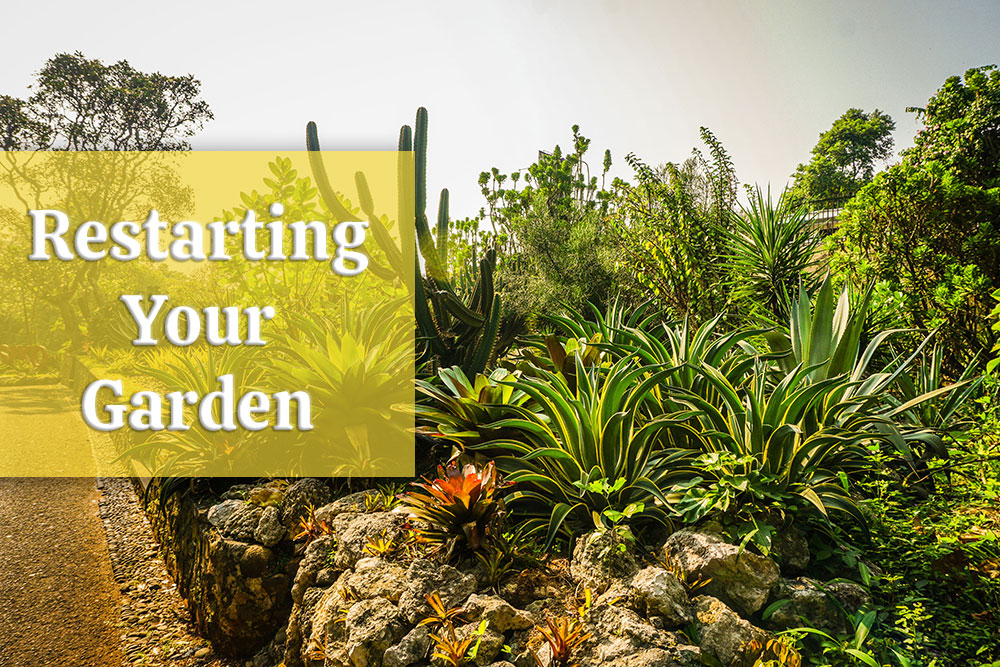
Spring is the perfect time to restart a garden. After months of cold, frost, and dormancy, the warming temperatures and longer daylight hours offer a natural invitation to refresh any outdoor space. Whether returning to a well-loved garden bed or starting anew, beginning a garden in spring is an exciting and rewarding process that sets the tone for the rest of the year.
Clean and Clear
The first step to restarting a garden in spring is clearing out the remnants of winter. Remove dead plants, leaves, and debris that have accumulated over the past few months. Not only does this make the garden look tidier, but it also prevents pests and diseases from taking hold in old plant material. Pull out any weeds that may have taken root during the winter, and dispose of them to keep the soil healthy.
Prune any shrubs or perennials that need reshaping or rejuvenation. Be careful not to cut new growth unless the plant specifically benefits from early spring pruning. Rake the soil gently to break up any compacted areas, which improves aeration and root development for future planting.
Test and Amend the Soil
Healthy plants begin with healthy soil. Before planting, test the soil’s pH and nutrient levels. Simple home testing kits are available at local garden centers like Star Nursery or Moon Valley Nurseries, both of which have several locations around Las Vegas. You can also contact the University of Nevada Cooperative Extension for more detailed soil testing and advice tailored to Southern Nevada’s unique desert conditions.
Adding organic compost not only feeds plants but also improves water retention and drainage—especially important in our dry climate. If the soil is too sandy or clay-heavy, mix in compost or soil conditioners from a local nursery to create a more balanced growing environment.
Plan the Layout
Take some time to plan the garden’s layout. Consider how much sun or shade different areas receive and group plants accordingly. Think about spacing, especially if planting vegetables or herbs that need room to grow. Rotate crops if growing food, which helps reduce soil-borne diseases and improves yields.
Sketching a rough garden map can help visualize where everything will go. If growing flowers, consider color coordination and bloom times to create an aesthetically pleasing display. Companion planting—placing certain plants near others to boost growth or repel pests—can also be beneficial.
Choose Plants Wisely
Select plants suited to the Las Vegas climate and soil type. Our region falls into USDA Hardiness Zone 9a, so be sure to choose varieties that can handle hot, dry summers and cooler desert nights. Nurseries like Plant World, Gilcrease Orchard, and Star Nursery offer a great selection of desert-adapted plants and expert advice for local conditions.
Start with cool-season vegetables like lettuce, spinach, and peas, which can tolerate the cooler spring temperatures. Warm-season crops such as tomatoes, peppers, and cucumbers should be planted after the last expected frost, usually around mid-March in the Las Vegas area.
For flowers, early bloomers like pansies, violas, and snapdragons bring instant color to the garden, while summer perennials like lantana, desert marigold, and salvia can be planted now for long-lasting beauty.
Watering and Mulching
After planting, water the garden thoroughly to help new roots settle in. In spring, rainfall is often limited in Las Vegas, so monitor soil moisture regularly. Use drip irrigation systems or soaker hoses to conserve water and deliver moisture directly to plant roots.
Apply mulch around plants to retain moisture, regulate soil temperature, and suppress weeds. Organic mulches such as bark, straw, or composted leaves (available at most local nurseries) are beneficial for most gardens in our arid climate.
Monitor and Maintain
As the garden begins to grow, keep an eye out for pests and diseases. Early detection makes management much easier. Use natural methods like neem oil or insecticidal soap if needed, and attract beneficial insects such as ladybugs and bees to support pollination and pest control.
Continue to weed regularly, fertilize as needed, and enjoy the gradual transformation of your garden from bare earth to vibrant life.
Local Help for a Flourishing Garden Restarting a garden in spring is more than a chore—it’s an act of renewal. For Las Vegas gardeners, the combination of desert climate and unique soil conditions means local expertise matters. Fortunately, nurseries like Star Nursery, Moon Valley Nurseries, and Plant World are excellent sources of native plants, soil amendments, and desert gardening advice. With a little planning and effort, your garden will soon bring beauty, food, and joy throughout the growing season.

